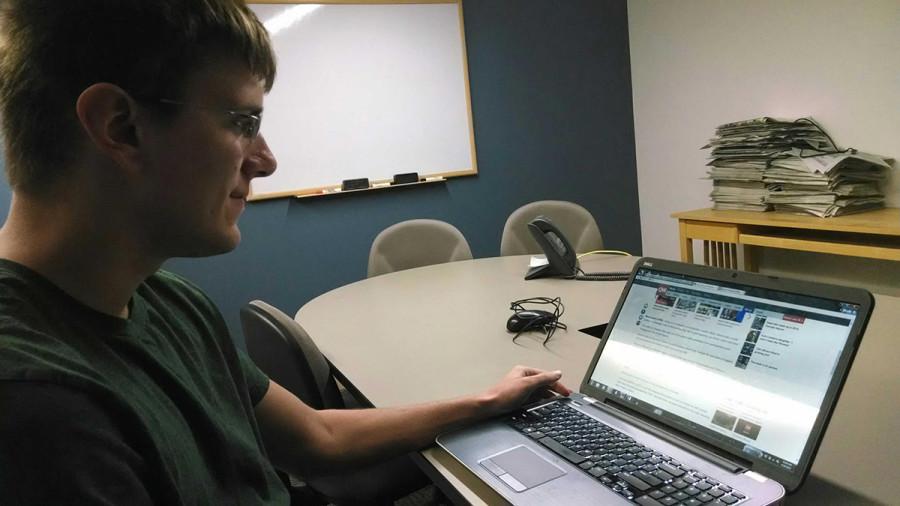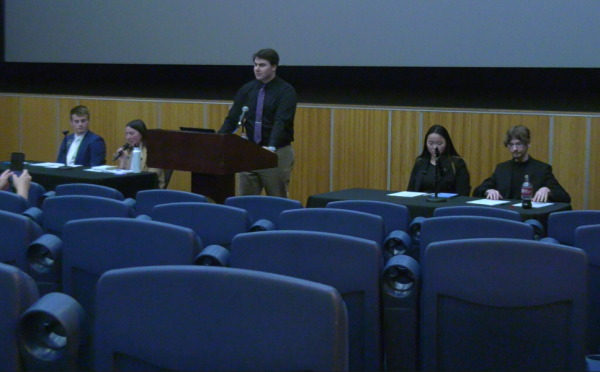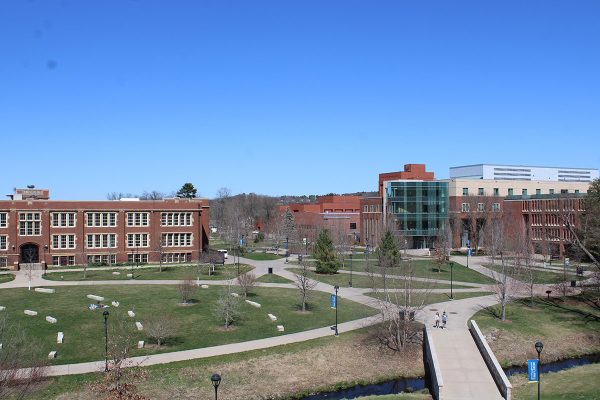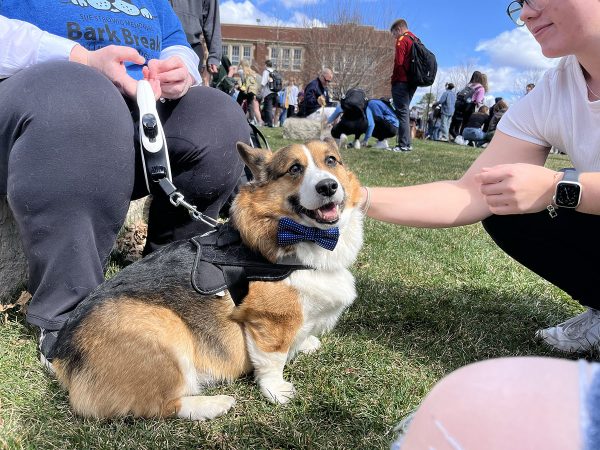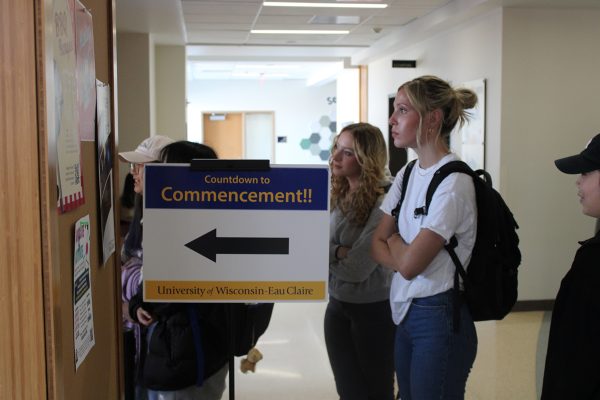Voters between ages 18 and 29 consistently have lowest turnout at polls
Photo by Nick Erickson
University of Wisconsin-Eau Claire senior Eric Anderson reads on CNN.com Hilary Clinton’s announcement for becoming a presidential nominee. Anderson voted in the 2012 election, but not in the 2014 midterms. He said that, eventually, his generation will have no choice but to hit the polls.
April 23, 2015
Wisconsin hasn’t voted for a Republican president since 1984. Yet Gov. Scott Walker has won three straight elections, including a recall, in the Badger State.
According the Pew Research Center, voters 18-29 years old tend to show up to vote in presidential elections but not midterm ones. In the last three elections, even including the 2012 presidential one, that group registered the lowest turnout among the four Pew age demographics.
University of Wisconsin-Eau Claire political science professor Steve Majstorovic said this age demographic, college students in particular, doesn’t vote as frequently because younger people have other priorities. He said students deem a lot of issues irrelevant right now, but once policies start to immediately affect them, things could change.
“There will be a tipping point for student turnout when things start to hurt them so directly,” Majstorovic said. “When that happens, and happens really clearly in your face, then there will be a rebellion.”
The number of young people who turn out to the polls correlates with which party takes office, according to the Pew poll.
Nineteen percent of of voters 18-29 turned out for the 2012 presidential election, where Democratic President Barack Obama beat out Republican nominee Mitt Romney for the oval office.
Only 13 percent of these voters showed up to the 2014 midterm elections, Republicans maintained control of the House of Representatives and took control of the Senate.
In the 2006, 2010 and 2014 midterms, this age group sided with Democrats by at least 54 percent in every cycle, the only group that can claim that. In 2012, 60 percent sided with Obama while 37 percent voted for Romney, according to a Roper Center poll.
It’s no secret that the younger generation leans left, yet both houses of Congress are controlled by Republicans.
UW-Eau Claire senior Eric Anderson voted blue in 2012 but didn’t cast a ballot in the midterm election this fall. He said he did more research for the presidential race partly because that race was more prominent two years prior.
“I wouldn’t say it’s a media coverage thing, but more the fact that the presidential election is talked about so much by everyone,” Anderson said.
Majstorovic said he believes some younger voters are discouraged by people with an extreme viewpoint who find a way into political advocacy careers, and that money can sometimes give power to people who take away student voices.
“The power of lobbyists and special interests makes them think, ‘My views aren’t worth anything,’” Majstorovic said. “Those are things that disempower people.”
He also said a barrage of conflicting information keeps youthful voters — even those who are politically interested — away from the polls.
“What’s floating on the airways is more polarized right or left,” he said. “So consequently, people get turned off. People aren’t as extreme as the political activists. That’s what students see.”
As an educator, Majstorovic said he gives students real-world examples of where the political process has directly affected people. If folks don’t like the way something is done but didn’t vote, there’s no room to complain.
He and Anderson both think things will change in coming years.
Anderson said this group will eventually have no choice but to look at problems such as Social Security, student loans, decriminalization and legalization of drugs and birth control issues.
“It doesn’t surprise me, mostly because our generation doesn’t understand the importance between voting and how democracy has run our country,” Anderson said. “But I think it will probably go up in time.”
With candidates in both parties beginning to announce presidential nominations for 2016, the youth vote will, as always, be worth just as much as every other age group. The question is, will they come?
Story originally published through Inside Eau Claire.

